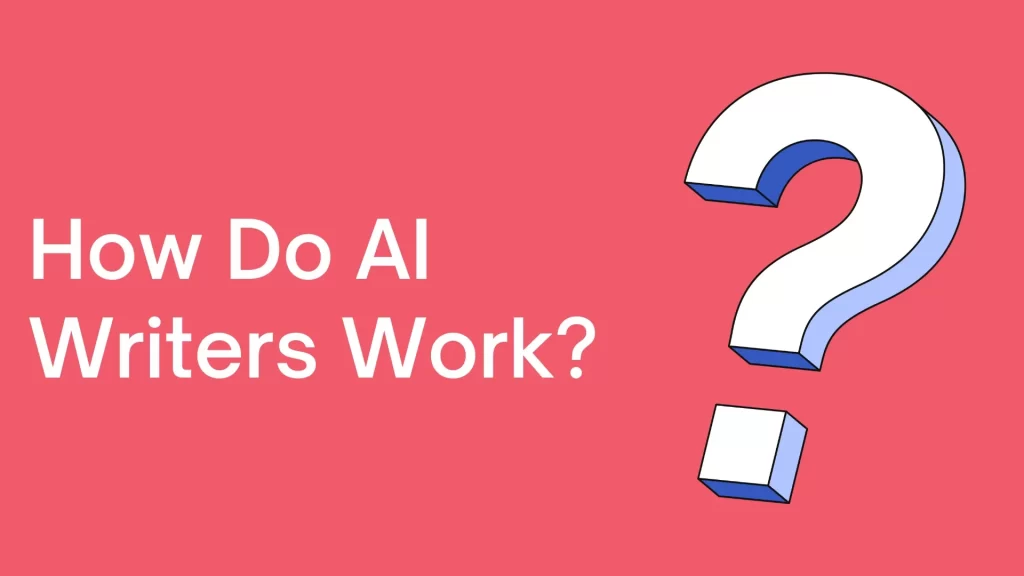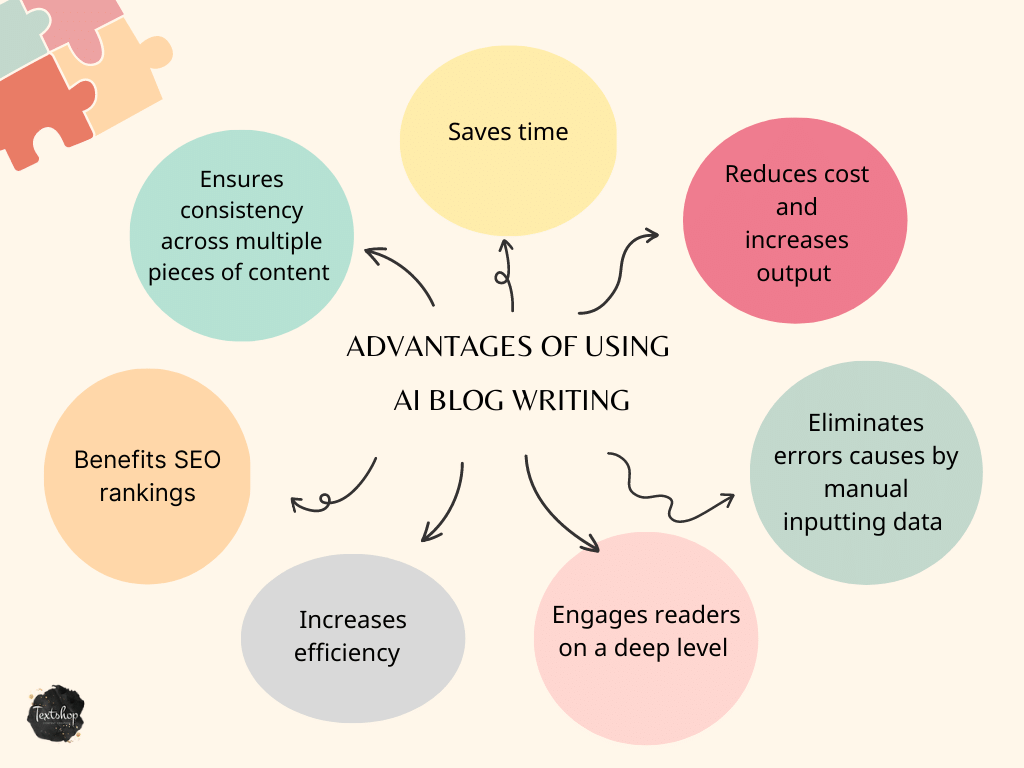
Introduction
In recent times, the field of artificial intelligence (AI) has seen remarkable progress, with significant advancements made in the domain of writing. AI-powered writing has made a significant impact, transforming content creation across various domains, including the generation of articles, reports, marketing materials, and even creative narratives. This blog post aims to explore the concept of AI writing and provide insights into how AI writing tools operate.
Understanding AI Writing
AI writing, often referred to as “AI content generation” or “AI-assisted writing,” encompasses the utilization of artificial intelligence algorithms and machine learning models to support or automate various aspects of the writing process. Its primary objective is to enhance the efficiency and effectiveness of content creation by offering valuable suggestions, generating textual content, or even completing entire pieces.
An AI writer is a software application that utilizes artificial intelligence to generate text based on user-provided input. These AI writers have the capacity to produce various types of content, including marketing copy, landing page content, blog topic suggestions, slogans, brand names, song lyrics, and even entire blog posts.
When individuals encounter the concept of AI writers for the first time, they often approach it with skepticism, which is only natural. However, this skepticism tends to dissipate once they personally experience the capabilities of AI writers. AI writers have emerged as indispensable tools that greatly simplify the workloads of their users. They effectively handle much of the creative workload, allowing users to save valuable time, which can be redirected towards other critical aspects of their professional lives.
Functioning of AI Writing Tools
AI writing tools rely on sophisticated algorithms and models, predominantly based on natural language processing (NLP) techniques.
How does an AI writer work?

Data Collection and Training: To develop AI writing tools, substantial volumes of textual data are gathered from diverse sources, including books, articles, websites, and more. This corpus of data forms the basis for training the AI model. The AI model learns from this extensive dataset, extracting patterns, grammatical rules, and contextual information, which it subsequently employs to generate text.
Comprehending Language: The AI model undergoes training to grasp the intricacies of human language, encompassing word structures, sentence formation, and the conveyance of meaning through context and semantics. This comprehension of language empowers AI to generate coherent and contextually relevant textual content.
Text Generation: AI writing tools are versatile in generating text. Some tools assist writers by suggesting enhancements to existing content, such as refining grammar, enhancing readability, or providing synonyms. Others have the capability to produce content from scratch, guided by a given topic or input. This encompasses the creation of articles, blog posts, product descriptions, and more.
Contextual Analysis: Advanced AI writing tools are equipped with contextual analysis capabilities. They take into account the context of the content being created and adapt their suggestions or generated text accordingly. This contextual awareness plays a pivotal role in ensuring the production of high-quality and relevant content.
User Interaction: Users engage with AI writing tools through user-friendly interfaces, enabling them to input their content or request assistance. Depending on the specific tool, users can receive real-time suggestions as they write or provide specific instructions for content generation.
The Evolution of AI Writers
Not too long ago, AI writers were primarily limited to generating short text snippets. However, there has been a rapid evolution in this field, and today, they are fully capable of producing entire blog posts, some even optimized for SEO considerations. This significant expansion of AI content capabilities has been driven by a surge of innovation within the AI content domain.
As these AI writing tools vie for market prominence, they continuously introduce fresh and inventive approaches to harness AI’s potential in assisting founders and content marketers in generating valuable content more efficiently and effortlessly.
Leading the Innovation Charge: ContentBot
ContentBot leads the charge in this innovation race. They were trailblazers in developing an AI Content WordPress plugin, greatly streamlining content creation for numerous users. Furthermore, they introduced automated blog topic ideas delivered directly to your inbox, simplifying the content ideation process. Most notably, ContentBot has become the first AI writer to offer automated full blog posts delivered to users every few days. This groundbreaking feature not only saves time but also empowers content creators to maintain a consistent flow of engaging content effortlessly.
AI Writers and Their Core Technology
Most contemporary AI writers rely on OpenAI’s GPT-3 model. The abbreviation stands for “Generative Pre-trained Transformer 3,” and this model is classified as an autoregressive language model. To put it simply, this means that the AI leverages its extensive dataset to string together sentences by predicting the most suitable next word in a sentence while maintaining context.
The Impressive Data Behind the AI Model
The AI model underwent training using a massive dataset totaling approximately 570GB of information. This dataset was sourced from about 10% of the internet’s content as of 2019. The sheer volume of data is staggering and is a primary reason behind the high quality and originality of the content it generates, which makes logical sense, for the most part. It’s worth noting that, on occasion, the AI may produce nonsensical information, but our research indicates that the AI consistently delivers excellent output approximately 80% of the time.
Unlocking the Potential of AI Writers for Your Blog

AI writers offer remarkable capabilities in crafting content, both in short form and long form. Among the various applications, AI excels when it comes to blog content creation. By utilizing AI writing tools, you can significantly expedite the process of generating blog content, far more efficiently than writing it manually (view this demo).
AI writers can assist you in producing a wide range of content types for your blog:
- “Write for Me” Style AI Writers: These AI writers are designed to generate content in short bursts, typically up to 150 words at a time. They can be particularly useful for quickly generating snippets of content or ideas.
- Blog Topic Ideas: AI can generate a plethora of blog topic suggestions, helping you overcome writer’s block and explore diverse subjects within your niche.
- Blog Introduction Paragraphs: Crafting engaging introductions is vital for capturing readers’ attention. AI can provide well-crafted introductory paragraphs to kickstart your blog posts.
- Engaging Questions and Answers: AI can generate thought-provoking questions and articulate answers, making your content more interactive and engaging.
- Bullet Point Expansion: If you have bullet points or key ideas, AI can expand them into comprehensive paragraphs, providing in-depth explanations.
- Listicles: AI writers can assist in creating list-style articles, which are popular for conveying information concisely and effectively.
- Pain-Agitate-Solution Copy: For persuasive content, AI can help structure your content in a Pain-Agitate-Solution (PAS) format, addressing problems, amplifying the pain points, and presenting solutions.
- Blog Outlines: AI can generate structured outlines with headings and subheadings, offering a clear and organized framework for your articles.
- Tone Adjustment: If you need to adapt the tone of your content (e.g., from formal to conversational), AI can assist in modifying the style to suit your desired tone.
- Sentence Rewriting: AI can rephrase sentences or paragraphs to enhance clarity, readability, and uniqueness.
By harnessing the capabilities of AI writers, you can significantly streamline your blog content creation process, allowing you to focus on strategy, creativity, and other critical aspects of your blogging journey.
Thanks,






Leave a Reply
You must be logged in to post a comment.